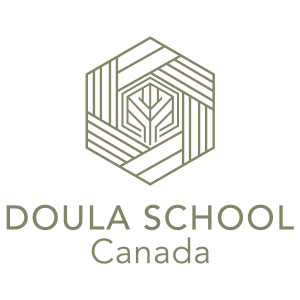Not the U.S. — But Not Off the Hook: Showing Up for Queer and Refugee Families in Canada
Doula Support for Queer and Refugee Families: As we watch what’s unfolding in the United States — Anti-Queer policies gaining momentum, Pride events under threat, and migrant families facing raids and deportation — it can be tempting for Canadians to breathe a sigh of relief.
But let’s not get comfortable.
The truth is, Queer and Refugee communities here in Canada are still navigating systems that weren’t built for them. And while our headlines may be quieter, the harm can still run deep — especially when it’s met with silence.
This Pride Month, we want to gently but clearly remind birthworkers across Canada: our work is political, too.
Being a Doula in Canada Means Facing Our Realities
Queer and trans families here still struggle to access gender-affirming care. Many refugee families — including queer refugees — face unsafe shelter conditions, long wait times for services, and a lack of culturally or linguistically appropriate care.
Hate might not be in the policy — but it’s still in the room.
Your clients may not be facing deportation, but they might still be facing systemic discrimination, generational trauma, or invisible stressors tied to what’s happening globally. The collective weight of fear, anger, and grief doesn’t stop at the border.
So how do we show up here, now?
1. Don’t Compare — Commit
Instead of using the U.S. as a measuring stick, use it as a mirror. What does our silence mirror? What would we do differently if our systems were next? The truth is, many of the same skills, resources, and sensitivities being called for elsewhere are just as needed here — even if our government isn’t making headlines.
2. Make Your Care Explicitly Safe
Don’t assume people feel safe with you — show them. Ask about safety and identity like it’s as normal as asking about birth plans. Make space for chosen family. Update your forms. Know your own biases. Be proactive, not performative.
3. Recognize Intersectional Risks
A birthing person who identifies as a queer refugee can face layered vulnerabilities — racism, homophobia, housing insecurity, the arduous task of navigating a complex and novel healthcare system. Know who your local mutual aid groups are. Understand how refugee sheltering systems work. Connect with organizations supporting queer newcomers and undocumented folks. The more context you hold, the more safety you can create.
4. Offer Local and Cross-Border Solidarity
This moment isn’t just about who’s on your client list. It’s about standing with queer and undocumented communities everywhere. That might mean checking in on doulas, friends, or clients across the border. It might mean amplifying fundraisers or calling your MP. Oppression is global — and so is our responsibility.
A Canadian Flag Doesn’t Equal Safety — But Your Practice Can
This Pride, let’s hold two truths: we are not the U.S., and we are not absolved. Queer and refugee families in Canada still need more than signs promising a positive space. They need doulas who show up, speak up, and do the ongoing work of creating safety from intake to postpartum and beyond.
Let’s commit to being those doulas.

About the Author: Aunjrya Fleming
Aunjrya is the EDI lead for Doula School. She is a Registered Nurse and International Board Certified Lactation Consultant (IBCLC) with a deep commitment to reproductive justice. She brings years of experience working with racialized, refugee, and 2SLGBTQIA+ families as a maternal health navigator, educator, and advocate. Aunjrya is passionate about building equity-informed spaces that center safety, dignity, and agency for all birthing people.


